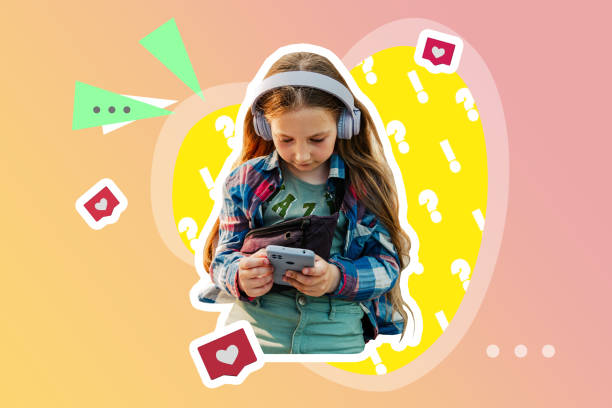Seven ways social media platforms can affect your wellbeing

Social media is becoming more and more popular. On May 23, US Surgeon General Dr Vivek Murthy expressed concerns about social media usage, especially among teenagers. In an advisor, he stated that social media usage among teenagers is almost universal. Up to 95% and even 40% of 8-12-year-old children are on social media.
He said that despite the widespread use of social media by children and teenagers, there is not enough evidence to prove whether it’s safe. This is especially true during adolescence, when brain development is at its most vulnerable.
According to the US’s top health official, one-third of girls between 11-15 years old feel “addicted” to certain platforms for social media. Over half of teens report it is difficult to quit social media.
In April 2023, the Ministry of Gender Equality and Family of South Korea announced that it would provide up to $500 per person each month for socially isolated people. This is to help them achieve “psychological and psychological stability and healthy development.” People are becoming more and more socially isolated due to their excessive use of social media. Virtual interactions are preferred to offline interactions with family and friends.
Many people are unaware that excessive use of social media can have negative effects on their health. Experts say that excessive usage can lead to social media addiction.
In the last decade, many studies have shown a link between social media usage and mental illnesses. In a review that was published in the International Journal of Indian Psychology, it was found that younger generations are more likely to have mental health problems and use social media.
Social media use can have a negative impact on us in seven ways.
1. Sleep deprivation is caused by excessive screen time
Social media is often accessed at night. Sleep deprivation is the result of this. Sleep deprivation can have a number of negative effects on your health, including daytime sleepiness, decreased productivity, and lack of concentration. Sleep deprivation can also increase the risk of clinical depression.
2. Eating disorders in youngsters
Mina Dilip is a child psychotherapist in Chennai who says that social media has a direct impact on the young population. She cites anorexia and bulimia as serious clinical conditions. She said, “Kids scroll through social media every day to be influenced by models.” They follow these diets in an attempt to lose weight. This leads to eating disorders, and their metabolism is affected by the lack of nutrition.
3. Sleep deprivation causing obesity
Social media use can cause sleep deprivation in teenagers and children. The food we ate for dinner will be digested before midnight if you stay up late. Overeating can lead to hormonal imbalances and obesity.
4. Impact on self-esteem
Social media users are usually happy when their posts receive more likes. If it’s lower than their previous post, they may feel that they haven’t done enough. The younger generation is heavily reliant on the likes and comments on their social media posts in order to feel good and worthy. “They tend to judge their own worth by the opinions of others and their response to their posts,” Dilip says.
She said that younger people are constantly checking their numbers and wondering why they don’t get likes or comments.
5. Reduced social interaction
Reduced physical social interaction is a result of increased social media interaction. Many people believe that because they are interacting with others online, there is no reason to engage in physical social interactions.
6. Mental health problems
Dr Manoj Kumar Sharma is a professor of clinical psychology and the head of SHUT Clinic (Service for Healthy Use of Technology) at the National Institute of Mental Health and Neurosciences, Bengaluru. He said that social media platforms are rife with negative comments, bullying, and misinformation. It can lead to social withdrawal, depression, anxiety, and sadness. Social media is a necessity for people who have difficulty socializing. This is an unhealthy compensatory mechanism. “It is replacing the notion of perceived support,” said Dr Sharma.
7. Reduced productivity due to lack of concentration
The excessive use of social media and lack of sleep may affect your ability to focus and remember. This can also affect a person’s decision-making skills and their productivity.



Leave a Reply